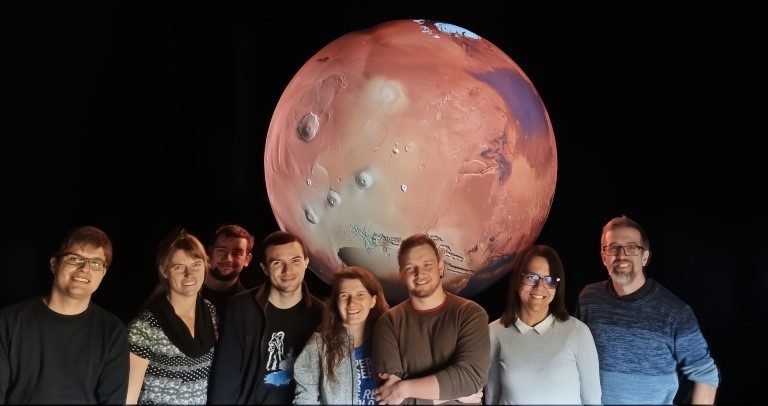Pushing the limits of current optics for space applications and lasers. Karel Žídek from the TOPTEC Centre of the Institute of Plasma Physics of the CAS won a prestigious grant from the European Research Council (ERC).
The COINED project, which will be led by Karel Žídek from the
TOPTEC Centre of the
Institute of Plasma Physics of the CAS, will focus on the research of thin layers on the surface of
optics and on pushing the limits of contemporary optics, for example for space applications and
lasers. Thin layers on the surface of the optics are often the most vulnerable element that must
withstand the external environment, repeated heating, UV radiation, mechanical tension and other
problems.
“The vision of the project is to create a still missing way of efficiently examining nanometer
interfaces in layers – for example to avoid optical failures in satellite systems where replacement
of a defective piece is simply not possible,” explains Karel Žídek from the TOPTEC Centre.
The COINED project, supported by the European Research Council with EUR 1,957 million. EUR,
aims to develop a completely new method to examine the interface of layers using a sequence of
laser pulses that trigger a microscopic "earthquake" in the layers, and to observe the reflections
of these waves – much as seismologists study the Earth. Over five years, the COINED project will
gradually move from simple layers and model examples to exploring layers that will be aimed at
space or high power lasers.
Doc. RNDr. Karel Žídek, Ph.D. is the head of the group of computational spectroscopy and
imaging center TOPTEC. He is one of the Centre's key scientists. Together with his team, he has
long been interested in laser time-differentiated spectroscopy and the possibility of implementing
compressed sensing in laser spectroscopy. He won the Otto Wichterle Prize in 2017 for his work in
ultrafast femtosecond spectroscopy.
Photo: TOPTEC Centre.
3 Dec 2024










